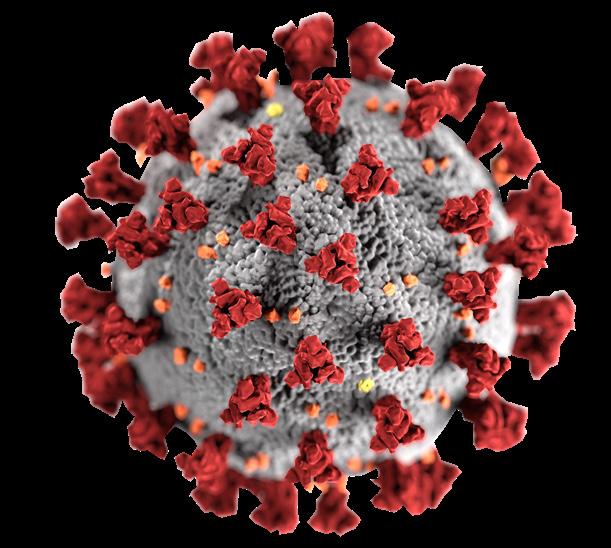
14 minute read
check out our investigation on
by Exeposé
University spending £467 a month on “hospitality biscuits”
Pete Syme
Advertisement
Deputy Editor
AFREEDOM of Information request has revealed that the University of Exeter spent £4,205 on “hospitality biscuits” for events in the period from July 2019 to March 2020.
Sir Steve Smith, Vice Chancellor 2002-2020, had been the subject of many biscuit-related memes after a
Georgia Shepherd & Bryony Gooch
Lifestyle Editor and Editor
AHEAD of what is predicted
to be an unpredictable
year, Exeposé spoke to
Deputy Registrar and Chief College Operations Officer Linda Peka on what to expect for the coming year.
É
É: How does the University plan on catering to the vast array of teaching methods that students experience, so all students get regular face-toface teaching time?
There’s been a lot of thought put into design principles, and these principles have equality, diversity and inclusion considerations.
Project Enhance is a blended delivery model, for what is a very uncertain year. We know where we are with COVID at the moment, so we can provide for high quality on campus delivery. But risk levels could go different ways, hence our enhanced and blended model so we can adapt. Our planned live face-to-face will be available online, so students around the world are able to access it. There will be recordings available, so there’s an opportunity to make sure that each individual department can adapt.
Each course will offer a mix of live teaching both on campus and online, digital resources such as videos, podcasts and interactive content, personal teaching support plus engagement with fellow students from around the world. We call this a blended learning approach which will enhance our educational provision.
É: Will the University be more lenient to students handing in work on the basis that everything is remote and not all students will have access to strong, working Wi-Fi?
Where we have come across the odd issue so far, the education teams have been really flexible and supportive. I’m 2016 Exeposé investigation found that almost £6,000 had been spent on the confectionery across a 12-month period.
Whilst it would appear that the expenditure has since been reduced significantly, the monthly average has only fallen from £482 to £467.
A wider period of comparison was unavailable since the University does not currently hold any data prior to July of last year.
Whilst the precise number is not not sure precisely how it works as that’s not my area, but we fully understand the difficulties that students are faced with, this remote working world is new for all of us. We fully understand the difficulties that students are faced with.
Additionally, temporary changes were made to our mitigation policy during the 2019/20 academic year in order to help students to better manage the disruption from COVID-19. One change was to not ask students for evidence to support mitigation applications. It has been decided to continue this in Term One for 2020/21, with the provision that this is reviewed in December 2020 to ascertain whether the further extension of this approach is justified. This will depend on the progress of the pandemic and the impact on the student experience. Students will also be able to withdraw mitigation requests up to three days after examinations, that is, if they think they were actually able to perform to the best of their ability.
É: How is the University investing in wellbeing services in preparation for a year that some might predict to be volatile and isolating?
So last year the University and Students’ Guild did a full wellbeing review, using our NHS partners, that led to an investment of a further million pounds in wellbeing
A number of posts have been agreed to, including posts with a specific remit to deliver talking therapies. We are also investing additional resources in helping distressed students in crisis. We are prioritising support for students out-of-hours and are currently recruiting for four new outof-hours welfare consultants and three new residence consultants. This recorded, with a pack of McVitie’s Chocolate Digestives costing £1.60, this would suggest an output of roughly 300 packs a month, or 4,672 biscuits. Across a nine-month period, this totals over 42,000.
Alternatively, with Tesco selling a variety pack of 70 for £1, the total amount of biscuits could be as much as 294,000.
A spokesperson from the University of Exeter said: "The University hold and hosts thousands of meetings, events and functions - involving staff, students and visitors - across all of its campus every year. Occasionally, and where appropriate, some small offer of
Image: Aghilms, pixabay
“This remote working world is new for all of us” An interview with Linda Peka
light refreshments may be provided."

how we can plough in and you know make things so much worse. So in answer to your question we are working with the Guild and Students’ Union, we have got some further guidance, the EDI team are all over it. We have got a report and support tool which is also now rolling out to our colleagues on the Penryn site… We now have one single report tool where people can report in and tell us where they are experiencing harassment. And there are specific questions around online. I think it’s going into our second or third year of operating this tool, and it’s becoming really useful to hone in on where some of those problems are and put those interventions in place.
É: Will more action be taken to provide consequence to those perpetrating these actions? Typically in the past where people have had these issues, perpetrators have not received any consequence. Will there be a way of providing victims with resolution?
I think this has been quite difficult. For example some of this really bad behaviour online has come via anonymous online platforms, of which some have been hosted overseas. They have been certainly beyond the University’s reach and even the police’s reach. And I think that has added to that sense that we have not always been able to get to the perpetrators, and we have not always been able to make that count in terms of consequences.
We are learning all the time about how we can look after people and make sure there are consequences
However, I am really heartened by our approach here. We saw some very bad behaviour online recently from some of our students relating to racism. That came through our complaints process and that’s been dealt with through our students’ cases process thoroughly, quickly and effectively.
So we are learning all the time, in this environment about how we can look after people and most importantly make sure there are consequences. You are right. We haven’t always been able to get at it, but you have got the assurance that when we can we are.

Comment
Fresher’s initiations - a legacy
Katie Fox Contributor
FRESHER’S week is a whirlwind for any new student. Whether you’re excited to start your course, meet new people or to experience the notorious university nightlife, there can be a lot of pressure for new arrivals to figure out who they’re going to be at uni from the getgo. The first part of term is spent getting to know the people you live with, the people on your course, as well making friends in any societies and clubs you join. Maybe you played hockey at school and are looking to carry it on, or you want to try something completely new like DJ-ing or slacklining. Exeter University has over 300 Guild-affiliated societies and the AU boasts around 50 A S lockdown is slowly coming to an end and the restrictions are slowly being removed, many students are wondering about the future of nightclubs, long an integral part of university life. A prospective student’s involvement with Exeter nightlife can begin even before they arrive. A quick Google search of the nightlife in Exeter will bring up the range of nightclubs that this city has to offer. For many, clubs and nightlife are a treasured part of the student experience, which they hope will return ASAP, but the government has not indicated what the future of such venues will be. A possibility would be to open clubs and enforce

sports clubs, so the options can seem overwhelming. The reputation of the socials can be a deciding factor in which societies or clubs you choose to join.
Socials are a great way of getting to know different people at University but can seem quite daunting to start with. In the past, sports clubs held initiations, which were normally the first major socials of the academic year, where there might be drinking or non-drinking challenges, designed to let you get to know people in the club. In the past, for some sports clubs, initiations seemed to be a time-honoured tradition, where new students were heavily encouraged to participate in humiliating challenges. Sports clubs are student run groups, which means that students who only took part in introductory socials a year ago find themselves taking full control over, and responsibility for, anything that happens in the course of the event. Any discussion of university initiations conjures to mind scenes from the movies of unrestrained hedonism and rampant alcohol consumption, but the intensity of the wearing of masks, but considering the setting it might not be practical and would be highly unpopular. In terms of social distancing, it is simple to determine that efforts to maintain the government’s advised measures when intoxicated is near impossible, which was hardly something that needed to be ‘confirmed’ anyway. However, the greater issue is that social distancing defeats the entire purpose of a nightclub. It seems likely that such venues will not be able to open again until either the UK becomes COVID-free or a vaccine is developed, both of which seem far off. Nightclubs in Exeter should not be re-opened until it can be fully ensured that students will be able to attend these venues safely and there is a minimal risk of contracting COVID-19 within one of these settings. In my opinion, this is the the ‘welcome’ could largely depend on the club. From wearing a nappy around town to drinking urine spiked pints, the very idea can be intimidating. Some clubs may decide to welcome its new members with a friendly pub quiz whereas another may decide the best way to get new members used to university life is to have them tackle silly challenges around town accompanied through pitstops of alcohol consumption.
There’s lots of pressure for new arrivals to figure out who they want to be
The form the night takes is entirely down to the members of the club, particularly the social secretary in charge of organising events. This means that the discussion around how appropriate and how safe these events are must occur within the student body, as it is us and us alone who are responsible for it, with the AU and University not allowing initiations of any kind.
A spokesperson for the University of Exeter said: “The University operates strict codes of conduct that clearly prohibit initiation type activities and/ or peer pressure to drink excessively smartest action to take, as even though the students themselves may not be particularly at risk, it lessens the likelihood, that when an asymptomatic student goes home for the weekend, reading week or end of term, they might spread the virus to their elderly parent or grandparents. Which in turn could affect the R-rates of other regions. Social distancing of a nightclub On the other hand, with societies no longer able to hold their clubbing-based socials or by actively discouraging students from taking part in such activities there could be an increase in the number of house parties. Such an increase could cause at events, and neither condone nor tolerate this type of behaviour. All clubs and societies have signed a code of conduct in which they have agreed to behave responsibly in this regard; if the heads of clubs/societies are found to be in breach of the code, disciplinary proceedings will be instituted.”
Initiations are not inclusive to those who don’t or can’t drink, and are very obviously dangerous for those who do. In 2006, a student died of alcohol poisoning at the University of Exeter after an initiation for the golf club. Students might feel left out or alienated if they make a sensible choice to avoid this type of event, and those that do attend due to a desire to fit in are risking their health and dignity. So it is a loselose for everyone.
With this being said, it is once again important to note any such “initiations” or “challenges” are strictly prohibited. Fortunately, the University and AU have banned initiation within all societies and clubs, therefore it does not necessarily mean you yourself will experience them. Speaking out against them if they do occur is part of social responsibility and can help ensure with cooperation from students and committees that they do not occur underground.
Aakruthi Karri
Contributor
Image: jarmoluk, Pixabay tensions with residents and local communities. Although these might be much smaller gatherings, they might be quite dangerous: their fun might be a cost of the peace, mental health and happiness of others, which is quite unpleasant. It could leave a detrimental impact on the lives of others and create a negative impression of students among the local community.
Overall, it is evident the future of nightlife at university is uncertain, with there not appearing to be an easy solution in these unprecedented times. It is possible there will have to be stricter oversight of student groups to ensure that socials based around drinking adhere to the government’s guidance on social distancing. This will hopefully guarantee students are aware of how socials should be taking place with the active practicing of COVID-19 safety measures.
COMMENT EDITORS: Isaac Bettridge Cassia Grace
The Guild president’s welcome
Sunday Blake Guild President
Image: Students Guild
FIRSTLY, I’d like to welcome all our new and returning students to Exeter. It’s an absolute pleasure to have our community together for the start of the year!
Freshers this year is very different to what we are used to however, we are confident that we’re going to have a great start to the year together. I hope you enjoy getting involved with the wide range of activities and opportunities that are planned for you over Freshers and over the next few months. There’s so much more to get stuck into and to discover! Don’t forget to head over to exeterguild. com/freshers to find out more about what’s on, about us and more.
As your Guild President for 2020/21, I’m committed to representing the width of our student population. Back in February I had a vision of Exeter as a more inclusive place where everyone can achieve their potential, and I am so grateful that thousands of students saw that vision and voted it through. I’m committed to achieving this in my time as your Guild President, and I look forward to working with each and every one of you.
As we move into the start of the year, we’re all going to be making adjustments to what we’re used to and possibly what we expected, but I’m confident we’re going to have a fantastic year together! Make sure you’re looking after your mental health and wellbeing as much as possible, particularly as we focus even more online. Don’t forget, we have an independent advice service which is available if you face any issues during your time at university, and the University’s Wellbeing Services offer a range of mental health support. Let’s do this year together! Student’s Guild President




